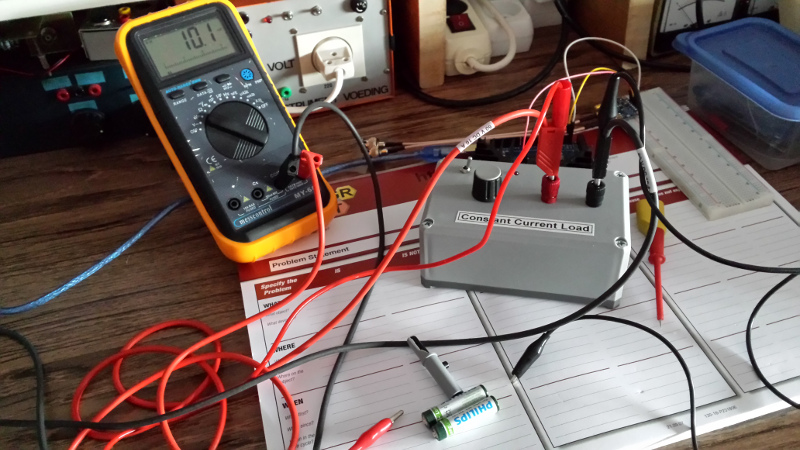
Last night I went to bed early and decided to watch a late night show before putting myself to sleep. Not an uncommon thing to do. What was uncommon though, was the fact that the tele didn't switch on when I operated the remote. Despite the statement by Einstein, I repeatedly pressed the same button on the remote to no avail. As time was limited before the program started, I jumped out of bed to fetch a number of AAA batteries to replace the ones in the remote control. All started working again with the fresh batteries, and the incident was under control :-)
This morning I found the batteries on my desk and decided to take a closer look at them, as the TV set is only about a year old, and typically these batteries last ages, so I thought. A quick inspection revealed that these batteries where Philips branded (as the TV set), and marked as Zinc carbon AAA, R03 1.5V. Interesting to see these old style batteries, as Alkaline seems to be the standard these days.

During troubleshooting workshops we frequently ask: What do you see, hear, smell, feel that tells you that there is a deviation? Last night that question was easy to answer as the TV didn't turn on, when I operated the remote. As a result I jumped to the most likely cause and replaced the batteries.
As my thinking hat was on this morning, I took the multimeter to measure the voltage for both batteries and I was surprised to find both reading just above 1.5 Volt. This made me wonder if there was a problem with the remote control, that was cured by reseating and replacing the batteries. So I took a closer look.
A few months ago I did some co-delivery with a co-worker that was quite strong that the question asked in troubleshooting should be changed into: What do you see, hear, smell, feel or measure that tells you that there is a deviation? And as these things linger along on your brain, it sprang to mind this morning. It even made me wonder if my measurement was really indicating a problem. A battery that measures 1.5 Volt, doesn't look like an empty battery, does it? huh?
Than I realised that maybe my measurement was wrong, as I was measuring the battery in an unloaded situation, whereas in the remote control it would have to supply its voltage while it was feeding/powering the remote. Therefore I took my constant current load into the measurement, to see what the battery voltage would be when it had to supply a small amount of current.

As this is all relatively easy to do if you're having a hobby in electronics, it helped to create the full picture. Once I hooked up the load to the battery and made it supply some 75 mA of current, I found the battery voltage dropping rapidly under 0.8 Volt, which is a common limit for most equipment to stop working. Finally my assumption around the empty batteries were proven, and I'm consciously competent again about the fact that it sometimes takes a thoughtful measurement, before you can draw proper conclusions.
I almost felt guilty about doing the initial voltage reading on the battery without loading it at all as recently there's been quite some fuzz by the EEVBlog and others about the added value of using devices like Batterizer.
Well, it's been a nice little troubleshooting journey showing how easy we jump to causes, while assumptions get us in the wrong direction.